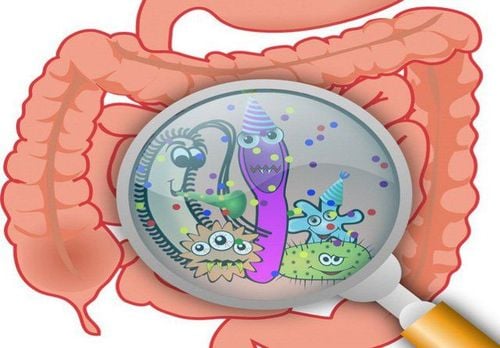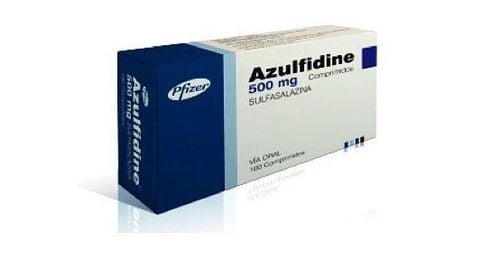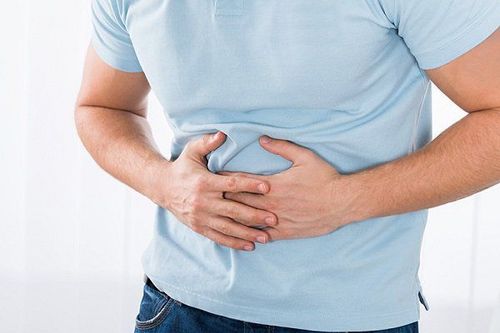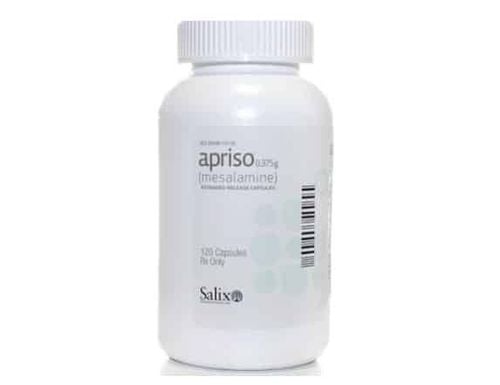This is an automatically translated article.
The article was written by Master, Doctor Mai Vien Phuong - Head of Gastrointestinal Endoscopy Unit - Department of Medical Examination and Internal Medicine - Vinmec Central Park International General Hospital.Ulcerative colitis (UC) is a chronic, long-term disease that causes inflammation of the intestines. Ulcerative colitis occurs when the lining of the large intestine (also called the colon), the rectum, or both becomes inflamed. It can cause a variety of symptoms like diarrhea, constipation, abdominal cramps, and more. Here's what you need to know if you're diagnosed with ulcerative colitis.
1. What are the symptoms of ulcerative colitis?
The symptoms you experience with ulcerative colitis will vary depending on which part of your colon is affected.Below is a brief description of the types of ulcerative colitis and some of the associated symptoms (according to the Crohn's & Colitis Foundation of America).
Anal ulcer Inflammation is limited to the small part of the colon closest to the rectum. Rectal pain and bleeding are common symptoms.
Proctosigmoiditis – sigmoid colitis: Inflammation involving the rectum and sigmoid colon, the lower part of the colon. Common symptoms include:
Bloody diarrhea. Constriction in the abdomen. Straining or inability to have a bowel movement despite feeling the need. Other types of ulcerative colitis: Left-sided colitis: Inflammation that occurs in the upper left part of the abdomen, including the sigmoid colon and rectum. Common symptoms include:
Bloody diarrhea. Cramps in the abdomen. Weight loss. Whole colon: Inflammation has spread beyond the left colon and can affect the entire colon. Common symptoms include:
Bloody diarrhea. Cramps in the abdomen. Tired. Significant weight loss. Chronic colitis: This is a severe, life-threatening form of ulcerative colitis. People with fulminant colitis have a rapid onset of symptoms with severe pain, persistent bloody diarrhea, fever, and dehydration. Patients with chronic colitis require immediate hospitalization for treatment.

2. How does ulcerative colitis affect the body?
Ulcerative colitis causes chronic inflammation in the large intestine or colon. Symptoms usually develop over time, gradually becoming more severe.Ulcerative colitis inflames the innermost lining of the large intestine and rectum. This disease can affect a small part of the colon or large portions.
The areas of the colon affected by ulcerative colitis determine the symptoms you will experience.
3. How is ulcerative colitis treated?
Treatment will help ease your symptoms and, eventually, stop the flare-up. Many people are in remission thanks to a combination of treatments.Prescription drugs are the most common form of treatment. This is usually the first form of treatment a doctor will prescribe. Each prescribed medication has its own benefits and potential side effects. Some of these side effects can be serious.
More severe cases of ulcerative colitis may require more invasive treatments, including surgery.
It's important to remember that what works for one person may not work for another. Talk to your doctor to find the best treatment for you.
4. Are lifestyle treatments used?
Certain lifestyle treatments may also be helpful. Many of these treatments can be used in conjunction with traditional medicine treatments. Consult your doctor to find out if any of these treatments may be of benefit to you.Lifestyle treatments for ulcerative colitis may include:
Eat small meals. Probiotic supplement. Adopting a flexible diet will help reduce the likelihood of worsening symptoms. Drink lots of water every day. Avoid artificial sweeteners. Limit wheat, onions, beans, and apples. Limit lactose. Daily exercise. Reduce stress and anxiety through meditation, yoga or acupuncture.

5. Can ulcerative colitis be cured?
Unfortunately, there is no cure for ulcerative colitis. However, treatments can significantly reduce the symptoms of the disease. Treatment can also help return your colon to a state of remission, a stage where the disease is inactive and not causing any symptoms. Maintenance treatment can help the disease go into remission. However, nearly a quarter of people with ulcerative colitis will need surgery to remove the colon. To prevent the risk and effectively treat ulcerative colitis, early screening through regular physical examination is extremely important.Vinmec International General Hospital has been implementing many periodic health checkup packages suitable for each age, gender, individual needs of customers with preferential price policy, including:
Package of medical examination children's general health Standard general health checkup package Special general health checkup package VIP general health checkup package Health checkup package Work permit- Issuance of work permits
Please dial HOTLINE for more information or register for an appointment HERE. Download MyVinmec app to make appointments faster and to manage your bookings easily.
Reference article: mayoclinic.org













